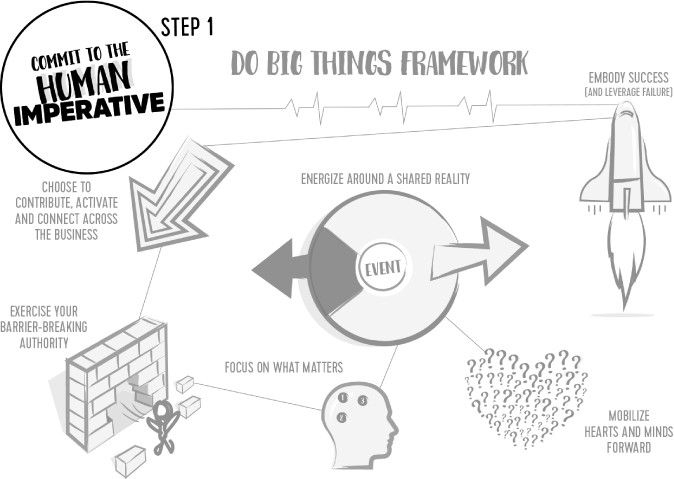3 Commit to the Human Imperative

When $60 million is invested in your project, and those in the executive suite have given their personal endorsement, big things are expected. For this project team, there was no shortage of excitement and nerves: Their objective was to totally revolutionize the way the global company gathered, analyzed, and dispensed customer data. If successful, the numerous business units within the company would no longer need to invest in their own research or look to costly outside sources; everything would be done internally, saving the company millions of dollars in efficiency costs.
This was a “we cannot fail” priority project. To succeed, the company did what most organizations do: They created a dream team by putting the brightest minds and the best talent on the job. A clear and definitive charter was established to include alignment among stakeholders, and resources were committed.
Freeze the story! Do you recognize what was missing? (If you do, you already understand the first thing required to do big things.) Despite the ample research findings from brilliant people with impressive initials and titles after their names working at places like MIT1 that prove it’s not how smart the members of your team are that determines success, organizations keep throwing talented and intelligent people together thinking that somehow talented and intelligent teaming ...
Get Do Big Things now with the O’Reilly learning platform.
O’Reilly members experience books, live events, courses curated by job role, and more from O’Reilly and nearly 200 top publishers.

